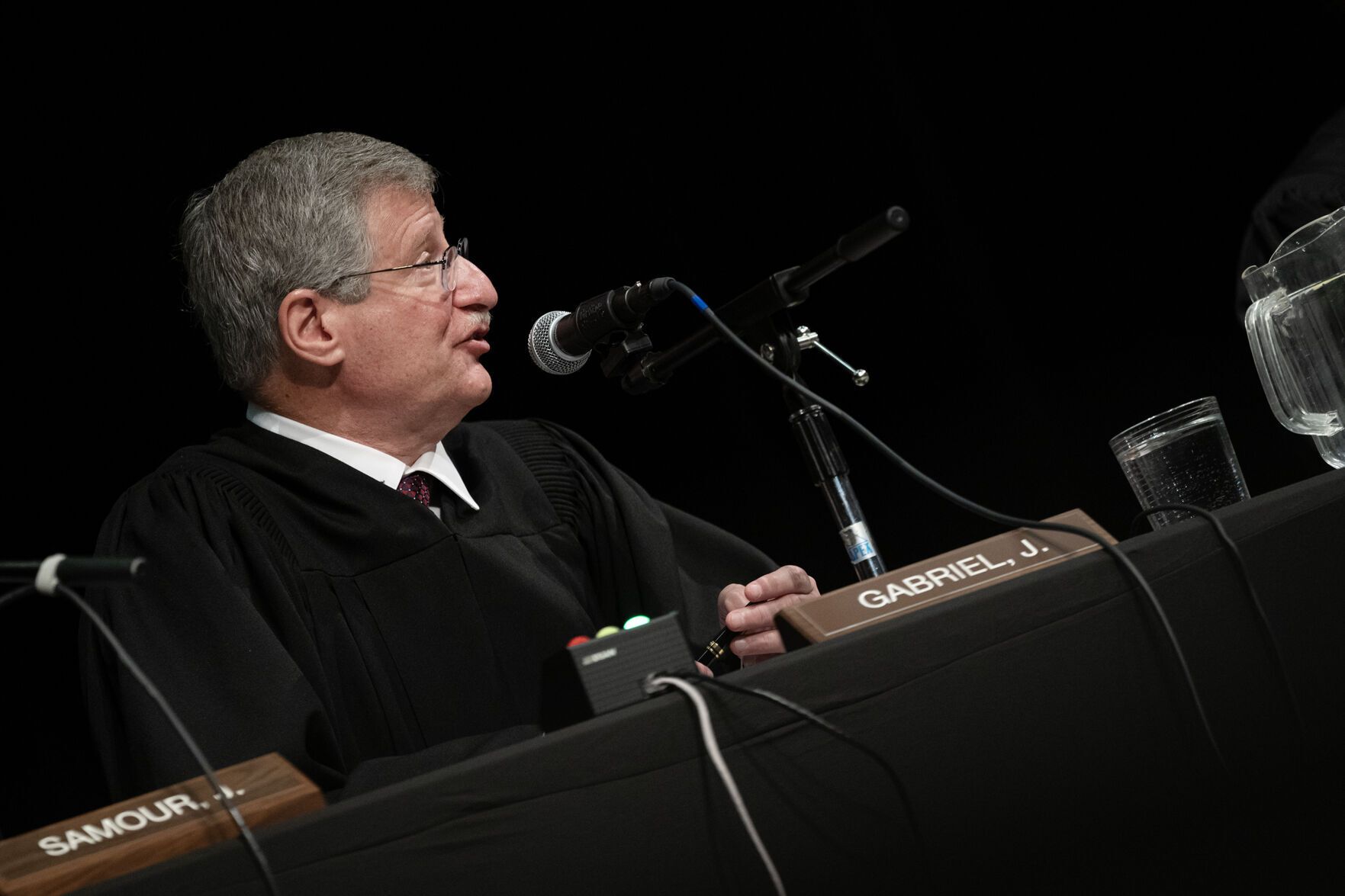judge w. eric kuhn
-

Divided Colorado Supreme Court says defendants liable for possessing others’ debit cards even if unusable
—
by
The Colorado Supreme Court, by 5-2, rejected the idea on Monday that prosecutors need to prove a debit card is functional in order to convict a defendant of unlawfully possessing someone else’s “financial device.” The majority believed Colorado law was straightforward: Legislators outlawed the unauthorized possession of a financial device, and debit cards were specifically…
-
Defendant’s ‘train wreck’ of a statement prompts appeals court to order new trial
—
by
Colorado’s second-highest court ordered a new trial on Thursday for a defendant whose 16-minute statement mid-trial, which had no basis in criminal procedure and was described by one judge as a “train wreck,” resulted in a constitutionally unfair proceeding. Jefferson County prosecutors charged Riddick Amoako-Asiamah with large-scale marijuana cultivation or distribution based on the substantial amount…
-
Appeals court eases path for injured plaintiffs to appeal unsuccessful claims against government
—
by
Colorado’s second-highest court on Thursday clarified that injured plaintiffs have the same opportunity as the government to appeal a judge’s order whenever the claims implicate the immunity afforded to public entities under state law. The Colorado Governmental Immunity Act broadly shields government entities and employees from lawsuits. There are exceptions, including for emergency vehicle operators…
-
Colorado justices mull level of proof needed for crime of possessing others’ debit cards
—
by
Members of the Colorado Supreme Court considered on Tuesday whether simply having another person’s debit card amounts to the crime of possessing someone’s “financial device,” or if prosecutors must also prove the card is functional. During oral arguments, Justice Richard L. Gabriel said he was worried about over-criminalizing conduct that, practically speaking, might not have…
-
Divided Colorado Supreme Court: Grandparents no longer ‘grandparents’ after grandchildren’s adoption
—
by
The Colorado Supreme Court ruled on Monday that a child’s grandparents are no longer legally “grandparents” who are able to seek visitation once their grandchild’s adoption has been finalized to a new set of parents. By 4-3, the court concluded the law enabling grandparent visitations applies to a person who “is the parent” of a…
-
El Paso County judge wrongly dismissed case after victim failed to show, appeals court rules
—
by
An El Paso County judge incorrectly dismissed a domestic violence case after the alleged victim did not appear on the morning of trial, when she should have instead granted the prosecution’s request to issue a warrant, Colorado’s second-highest court ruled last week. Under the rules of criminal procedure, a judge “shall issue” a warrant for…
-
Colorado justices reject unusual appeal by analogy in community corrections sentencing case
—
by
The Colorado Supreme Court concluded on Tuesday that state law did not entitle a man to receive credit for the time he spent in non-residential community corrections, notwithstanding the court’s own 34-year-old analogy suggesting a deduction was possible. When Ryan Wallace Bonde was terminated from a non-residential community corrections program and resentenced to prison, his…
-
Divided appeals court upholds judge’s decade-old violation of restitution law
—
by
Colorado’s second-highest court turned aside a defendant’s challenge earlier this month to a judge’s decade-old order that he pay $28,518 in crime victim restitution, even though the judge failed to comply with state law in doing so. In Colorado, as part of sentencing, judges must consider whether defendants owe financial restitution to their victims. If so,…
-
When is a grandparent a grandparent? Colorado justices weigh visitation rights dispute
—
by
Under Colorado law, a grandparent is a person “who is the parent of a child’s father or mother.” On Tuesday, members of the Colorado Supreme Court heard the argument that the word “is” is crucial to understanding what should happen when the mother and father are no longer alive. “Under the plain definition, you say…
-
Colorado justices consider 33-year-old analogy’s impact on community corrections sentences
—
by
The Colorado Supreme Court pondered an unusual question on Wednesday: When a previous decision relied on an analogy, but the circumstances of the analogy have since changed, is the prior decision still valid? Ryan Wallace Bonde’s appeal to the Supreme Court explores whether Bonde’s time in non-residential community corrections can be deducted from the prison…


